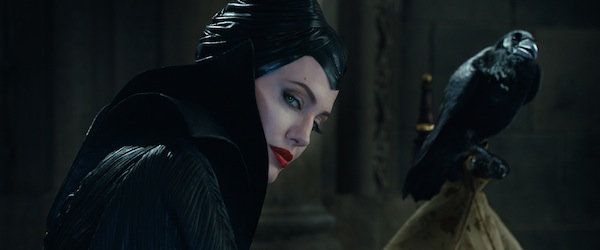Women in Film: Hollywood’s Summer Report Card

The summer is finally coming to an end, and everyone’s getting ready to go back to school. But over the summer while all the kids were letting their brains turn to mush at the movies, it’s Hollywood’s turn to get a report card. Let’s see how Tinseltown fared this season in one of its worst subjects: the representation of women in film.
A to Disney
Maleficent, Disney’s revisionist “Sleeping Beauty” adaptation starring Angelina Jolie as the terrifying title character, rejects the classic “Someday My Prince Will Come” Disney princess model in favor of a story about female characters developing friendships and having agency, rather than being competitors and getting rescued. Maleficent was the second-highest-grossing film of the whole summer, topping a $700 million worldwide gross in July.
B– to Kevin Feige, President of Marvel Studios
In an interview with Comic Book Resources, Feige said he hopes to finally make a female-led superhero movie (Black Widow, where are you?), but not yet—not if it would upset the carefully plotted schedules of Marvel’s male superhero franchises. “I very much believe in doing it,” he said, “I hope we do it sooner rather than later.” Let’s see you put your money where your mouth is, Marvel.
D+ to Dawn of the Planet of the Apes
Critically acclaimed blockbuster Dawn of the Planet of the Apes—the highest grossing film in July and number six for the whole summer—neglected to feature women almost entirely, as Kyle Buchanan points out in Vulture. For a film so concerned about the survival of the human race, Dawn of the Planet of the Apes seems pretty ignorant about the components necessary for its continuation (i.e. female humans—and for that matter, there were hardly even any female apes).
C– to anyone who has used the phrase “Manic Pixie Dream Girl” completely unironically
In a July 15 article in Salon, film critic Nathan Rabin expressed regret for coining the phrase that launched a thousand quirky comedies, originally published in a 2007 review of Cameron Crowe’s lackluster film Elizabethtown. Since the phrase exploded, it’s been twisted from the intentions of Rabin’s apt initial article. The Manic Pixie Dream Girl is not a legitimate cinematic trope; the term was invented to describe bad, sexist writing, not an actual kind of woman who should be intentionally represented onscreen and discussed as a valid character type.
F to Hollywood in general for failing to hire female directors
Of the 25 highest-grossing films of the summer, exactly zero were directed by women, even among female-led films like Lucy, Tammy, Maleficent, and The Fault in Our Stars. Of the 25 highest-grossing indie films of the year so far, only two were directed by women (as of August 7): Amma Asante’s romantic historical drama Belle, which was released in May, and writer-director Gillian Robespierre’s Sundance comedy Obvious Child, which came out in June. Both films were critically adored and featured star-making turns by talented female actors in the lead roles.
A to Scarlett Johansson, Queen of the Summer
For being a badass in Lucy, which came out July 25 and won that weekend at the box office, definitively crushing Hercules, which had the same release date and stars The Rock as the legendary Greek hero. She also had a small role in Jon Favreau’s delightful indie passion project Chef, released in May; starred in Jonathan Glazer’s acclaimed sci-fi art film Under the Skin and donned Black Widow’s black spandex once again in Captain America: The Winter Soldier. The latter two films were released in April, effectively kicking off the Summer of Scarlett. All hail the Queen.
Mary Sollosi / Intern Blogger
